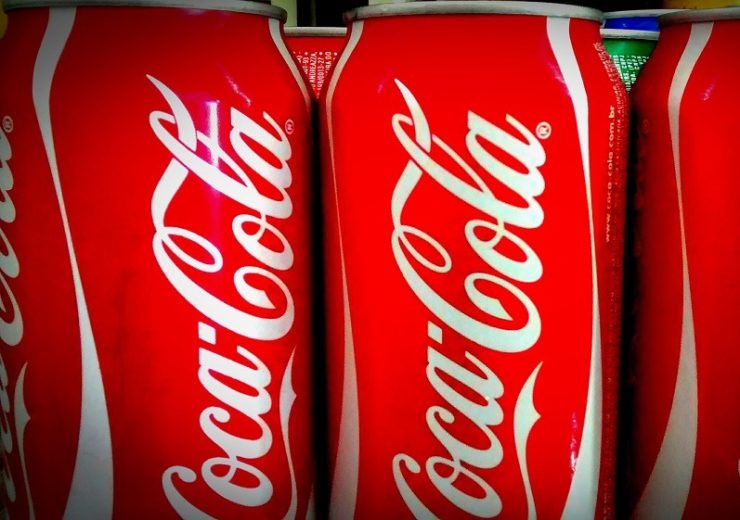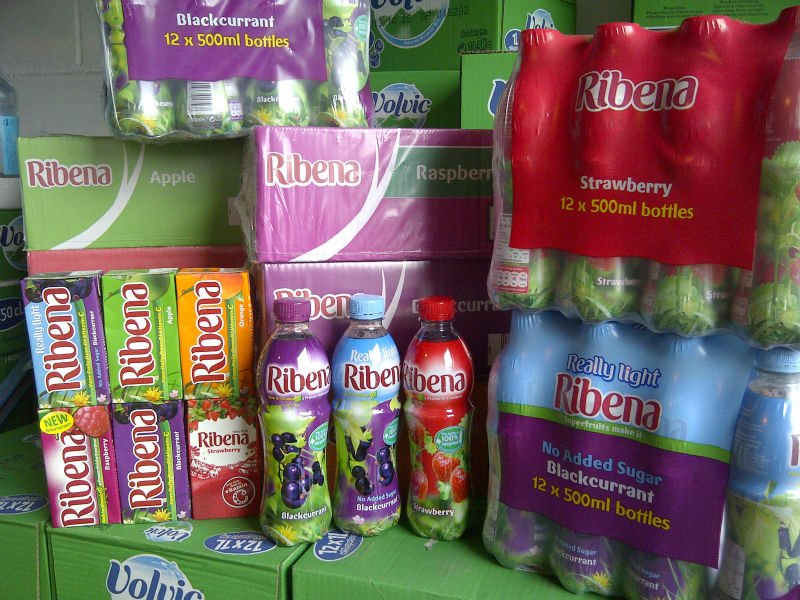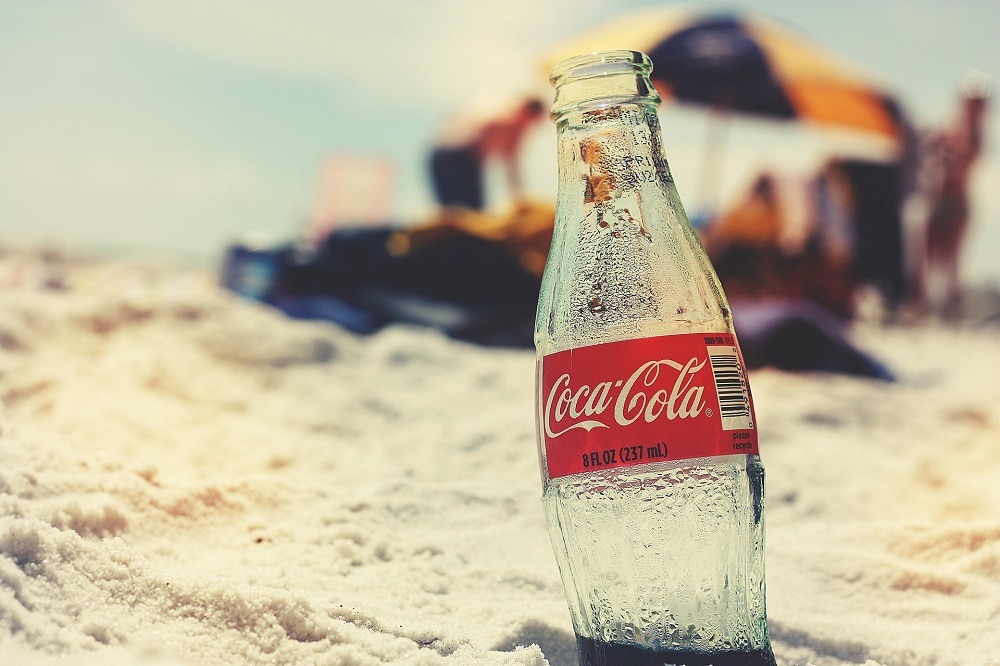From Just Eat's use of seaweed packaging to Coca-Cola's World Without Waste commitment, we look at what makes brands more sustainable themselves

Some of the world's biggest brands were speaking at this year's Packaging Innovations conference (Credit: Pixabay)
Major companies, including the likes of Just Eat, The Coca-Cola Company and Unilever, have been striving to develop more sustainable packaging.
Charity the Ellen MacArthur Foundation set-up the New Plastics Economy, which has been signed by companies representing 20% of all plastic packaging produced globally, in 2018.
All the manufacturing businesses that have signed-up to the agreement have committed to a goal of making all of their plastic packaging reusable, recyclable or compostable by 2025.
Sustainability was a hot topic of conversation at this year’s Packaging Innovations conference, with some of world’s biggest consumer brands speaking about what they are doing to become more environmentally-friendly.
From seaweed sauce sachets to the Snap Pack, NS Packaging looks at the work of some of these businesses.
Just Eat
First founded in 2001, London-based Just Eat is a takeaway food delivery supply company operating in 13 countries across Europe, Asia, Oceania and the Americas.
On average, restaurants attached to the company take an average of 4,000 orders a year, with more than 12 million consumers using the service each month.

According to the firm’s director of business partnerships and restaurant services Robin Clarke, it’s innovating in the field of environmentally-friendly packaging to aid the businesses it works with.
He said: “As most of the businesses that we work with don’t have massive innovation budgets, we act on their behalf.
“One way we have done this is by stopping the sale plastic packaging on our takeaway platform.”
Clarke says Just Eat is keen to find new packaging materials, working with developers such as seaweed-based company Notpla.
“What we really wanted to focus on is innovation, we wanted to step outside the issues of today and ask the question, is there something better,” he explained.
“Around 16 billion ketchup sachets are used every year, but they sit in the ground for around 600 years as none of them get recycled because they are too contaminated.
“We found seaweed packaging developer Notpla to use as sauce sachets,
“By no means do we think this is a silver bullet that cures all, but we are suggesting it has got some good applications.”
Suntory Beverage and Food
Japanese food and drink manufacturer Suntory Beverage and Food‘s best-known brands include Ribena and Lucozade, which were purchased from GlaxoSmithKline for 1.35bn ($1.68bn) in 2013.
These drinks are reportedly top of markets in the UK, Ireland, Spain and Portugal.
The company’s director of external affairs and sustainability Michelle Norman says the firm has two ambitions to make its products more environmentally-friendly.

He said: “Firstly we want to make 100% sustainable packaging, meaning all the materials we use for PET bottles will be made from either recycled plastic or bio-plastic materials.
“Secondly, we want our products to be bottle-to-bottle recycled, so fully circular, because otherwise how are you going to get the material back.
“This means we have to look at the design of the waste management infrastructure and see how our bottles will go from being disposed of by the consumer to being turned back into plastic resin ready for reuse.”
Based upon the principles of the circular economy, the firm wants to make sure its recycling process is as effective and efficient as possible.
One way the company has done this is by showing their packaging designers the waste management system it currently uses, allowing them to gain an understanding of how best to design a product to suit that infrastructure.
Coca-Cola Company
Originally developed as a patent medicine, Coca-Cola has become one of the world’s biggest soft drinks manufacturers.
As part of its commitments to become more environmentally-friendly, the firm has developed a World Without Waste scheme, which includes a target of making 50% of all packaging to be made from recycled material by 2030.
“As a business, we use around 170,000 tonnes of packaging a year in the UK, so that comes with a huge responsibility to make it as sustainable as possible, and plastics are a really important part of that, but they are not the biggest part,” explains Coca-Cola European Partners Great Britain’s head of sustainability Nick Brown.
“We sell twice as many aluminium cans, and we use more glass then we do plastic, so when we talk about sustainable packaging, we really are talking about it in the border context of packaging.”

Brown says the business has given itself simple checks in order make the packaging as sustainable as possible.
He said: “The first one is, do you really need the packaging at all?
“The second, can you make that packaging as sustainable as possible? For example, good eco-design, reusability, high use of recycled content.
“The third one is about consumer engagement — packaging is there to serve the need of, in part, consumers, so making sure they are engaged with the journey, making sure they are involved and know what they need to do with it at the end-of-life is really important.
“The fourth one is about enhancing its recycling and collection systems, because for a lot of the packaging that we have got at the moment, this is the best way to put them back into use as second applications.
“And then innovation in the future.”
Carlsberg
One of the biggest brewers in the world, Danish drinks giant Carlsberg was founded by J. C. Jacobson in 1847.
The company has set a goal of becoming a zero-carbon emissions brewery by 2030, and limiting global warming to 1.5 degrees.

One way the firm has made itself more sustainable is through its Snap Pack system, which is used for six-pack canned drinks.
Instead of using plastic packaging to hold cans together, it uses a glue technology to cut plastic usage by up to 76%, when compared with previous packs.
Speaking at Packaging Innovations, Carlsberg’s sustainability manager Peter Statham told how its packaging business is contributing to the company’s zero-carbon emission goals.
He said: “Where packaging comes into this, one of those targets is a 30% reduction aim of our beer-in-hand footprint, so that’s everything from the farm to the fridge.
“Packaging is roughly 40% of that footprint, so we are looking at new innovations, ways to cut the amount of material we use.
“We are looking at how many materials our products use, for example our new glass bottles are ten grams lighter than the ones they replaced.”
The main driving force behind the Danish brand’s work is to reduce the overall amount of material it uses — not simply swapping one material for another.
Lush
Cosmetics retailer Lush was founded in the UK town of Poole in 1995, and has built a reputation as an eco-friendly operator.
Half of the retailer’s in-store products are packaging-free, with the company also looking into the use of sustainable cork for containers.
“We have been championing regenerative materials for many years, we are pushing forward with reusable and refillable packaging,” explains Lush Cosmetics ethical buyer Nick Gumery.

“As an ethical buying team, we also get out there and go direct to source wherever possible, direct to growers and suppliers, trying to have a really clear and short supply chain.
“We are also looking at natural materials, which means nature becomes your recycling centre, and it’s biodegradable at the end of its life.”


